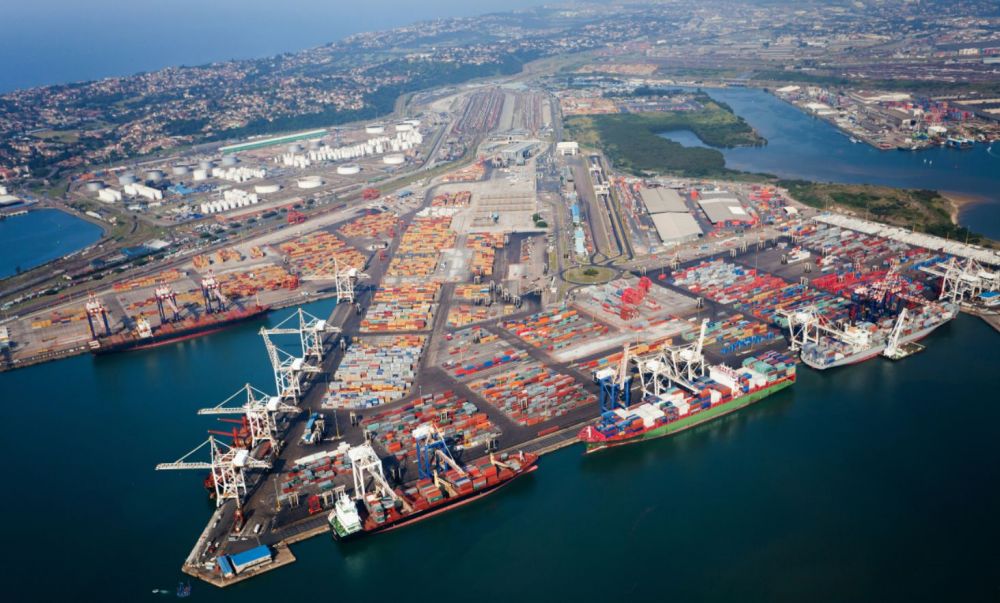NO.1. UPS in the United States may usher in a strike in the summer
According to the Washington Post, the International Brotherhood of Teamsters, the largest union of American truck drivers,is voting on a strike,although the vote does not mean a strike will occur. However, if UPS and the union have not reached an agreement before July 31, the union has the right to call a strike. According to reports, if a strike occurs, it will be the largest strike action in UPS history since 1950. Since early May, UPS and the International Truckers Union have been negotiating a UPS worker contract that determines pay, benefits and working conditions for about 340,000 UPS employees across the country.
NO.2, international express, parcel and freight companies will usher in a recovery in freight volume
The latest “Goods Trade Barometer” from the World Trade Organization (WTO) and the International Air Transport Association (IATA) shows that international express, parcel and freight companies are likely to see a recovery in cargo volumes in the coming months.
Global trade in goods remains sluggish in the first quarter of 2023, but forward-looking indicators point to a possible turnaround in the second quarter, according to WTO research. This is in line with the latest figures from the International Air Transport Association. The study showed that the decline in global air cargo volumes slowed in April as demand-side economic factors improved.
The WTO Merchandise Trade Barometer Index was 95.6,up from 92.2 in March, but still well below the baseline value of 100,suggesting that merchandise trade volumes, although below trend, are stabilizing and picking up.
NO.3. British companies lose 31.5 billion pounds in sales every year due to express-related problems
According to a new report released by express management company Global Freight Solutions (GFS) and retail consulting firm Retail Economics,British companies lose 31.5 billion pounds in sales each year due to express-related problems.
Of this, £7.2 billion was due to a lack of delivery options, £4.9 billion was due to costs, £4.5 billion was due to delivery speed and £4.2 billion was due to return policies,the report showed.
The report points out that there are many ways retailers can work to improve the customer experience,including expanding delivery options,offering free shipping or reducing delivery costs, and shortening delivery times. Consumers want at least five delivery options, but only one-third of retailers offer them, and fewer than three on average,according to the survey.
Online shoppers are willing to pay for premium shipping and returns,the report said.75% of consumers are willing to pay extra for same-day,next-day or designated delivery services,and 95% of “millennials” are willing to pay for premium delivery services. The same is true when it comes to returns, but there are differences in attitudes across age groups.76% of those under 45 are willing to pay for hassle-free returns.In contrast,only 34% of people over the age of 45 said they would pay for it.People who shop online at least once a week are more willing to pay for hassle-free returns than those who shop online once a month or less.
NO.4, Maersk expands partnership with Microsoft
Maersk announced today that it is advancing its cloud-first technology approach by expanding the company’s use of Microsoft Azure as its cloud platform. According to reports, Azure provides Maersk with an elastic and high-performance cloud service portfolio, enabling its business to innovate and provide scalable, reliable and secure products, and shorten time to market.
In addition,the two companies intend to work together to strengthen their global strategic relationship across three core pillars: IT/Technology, Oceans & Logistics, and Decarbonization. The main objective of this work is to identify and explore opportunities for co-innovation to drive digital innovation and decarbonization of logistics.
NO.5. The labor and management of the port of West America reached a preliminary agreement on a 6-year new contract
The Pacific Maritime Association (PMA) and the International Coast and Warehouse Union (ILWU) have announced a preliminary agreement on a new six-year contract covering workers at all 29 West Coast ports.
The agreement was reached on June 14 with the assistance of Acting U.S. Labor Secretary Julie Sue. ILWU and PMA have decided not to announce the details of the deal for now, but the agreement still needs to be approved by both parties.
“We are pleased to have reached an agreement that recognizes the heroic efforts and personal sacrifices of ILWU employees in keeping our port operating,” PMA President James McKenna and ILWU President Willie Adams said in a joint statement. We are also pleased to turn our full attention back to West Coast port operations.”
NO.6. Fuel prices drop, shipping companies reduce fuel surcharges
Mainline operators are cutting bunker surcharges in light of the sharp fall in bunker fuel prices over the past six months, according to a new report from Alphaliner published on June 14.
While some shipping companies highlighted in their first quarter 2023 results that bunker expenses were a cost factor, bunker fuel prices have been falling steadily since mid-2022 and further declines are expected.
NO.7. The share of e-commerce sales of pets in the United States will reach 38.4% this year
Inflation for pet food and services topped 10% in April, according to the U.S. Bureau of Labor Statistics. But the category has been somewhat resilient to the U.S. recession as pet owners continue to spend.
Research from Insider Intelligence shows that the pet category has been growing its share of e-commerce sales as people rely more on online shopping. It is estimated that by 2023, 38.4% of pet product sales will be conducted online. And by the end of 2027, this share will increase to 51.0%. Insider Intelligence notes that by 2027, only three categories will have higher e-commerce sales penetration than pets: books, music and video, toys and hobbies, and computers and consumer electronics.
Post time: Jun-27-2023







